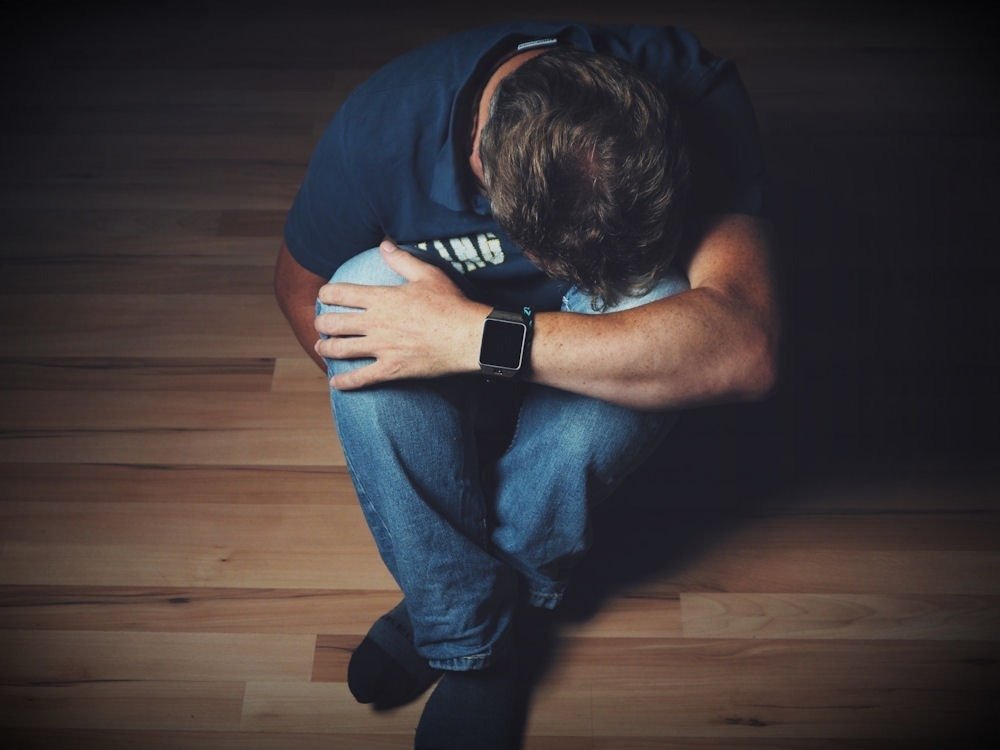Relapse is a common occurrence for individuals who are in recovery from addiction. It acts as a return to substance abuse or harmful behaviors after a period of abstinence. Various factors trigger relapse, such as emotional turmoil, stress, and unresolved trauma.
Recognizing the warning signs is crucial for individuals in recovery, as it can help prevent a full-blown relapse and allow them to seek support before it’s too late. We will discuss common relapse warning signs and how to recognize them. Golden Gate Recovery offers a relapse prevention plan in Marin County, California for men struggling with substance abuse.

Relapse is not sudden but a gradual process. Recognize the warning signs to avoid relapse. Relapse does not happen overnight and can appear by the following signs:
Individuals might start to isolate themselves from friends, family, and support groups. They may also withdraw from activities they used to enjoy.
A sign of relapse can be sudden changes in mood or behavior. Changes in mood and behavior can include irritability, anger, depression, or increased anxiety.
Returning to old friends or environments that were part of the individual's substance abuse can be a red flag that they are heading to relapse.
During recovery, individuals often learn the importance of self-care. Relapse warning signs may include neglecting personal hygiene, skipping meals, and not getting enough rest.
Individuals in recovery may start justifying and rationalizing their thoughts and behaviors, making excuses for potential relapse triggers.
It is normal to relapse. Relapse is an expected part of the recovery process. Many individuals will experience setbacks, and it's essential not to view setbacks as failures but rather as growth opportunities. Recovery is a lifelong journey and does not mean starting over from square one.
Recognizing the warning signs can help individuals take proactive steps to prevent a full-blown relapse. It’s crucial to seek support from loved ones, therapists, or support groups during this time. Here at Golden Gate Recovery in Marin County, California, we can men overcome addiction and mental health concerns.
Relapse triggers can vary from person to person, but some common triggers include:
Significant life changes, such as a loss of job or relationship problems, can be overwhelming and increase the risk of relapsing.
Experiencing negative emotions like anger, sadness, or boredom can lead to cravings and thoughts of using substances.
Peer pressure to use substances or engage in social activities where drugs or alcohol are present can be triggering for individuals in recovery.
Feeling overly confident in one's ability to stay sober may lead to complacency and not taking proper precautions.
Relapse comes in three stages: emotional, mental, and physical.
During the first stage, individuals may not have thoughts or cravings to use substances, but their behavior and emotions may be similar to when they were in active addiction. They may start isolating themselves, neglecting self-care, and experiencing mood swings.
Individuals may start having thoughts of using substances again during the second stage. They may also begin romanticizing past substance use or glamorizing it. This stage is critical as recognizing these thoughts and behaviors early on can prevent a full-blown relapse.
The final stage involves returning to substance abuse or engaging in harmful behaviors. Before reaching this stage, seeking support and staging an intervention is crucial. It can be challenging to stop once started.

If you or a loved one is showing relapse warning signs, reaching out to a therapist, attending group meetings, and talking to trusted friends and family can support you during this time. It’s important not to feel ashamed or guilty about experiencing relapse warning signs.
Recovery is a journey with its ups and downs, and seeking help during challenging times can make all the difference in preventing a full-blown relapse. Remember, recognizing the warning signs is a sign of strength, and there is always hope for recovery. So don’t hesitate to reach out for help when needed!
It can be challenging to recognize signs in someone else but here are some red flags to look out for:
If you notice a loved one suddenly isolating themselves or acting differently, it could be a sign.
If you notice a loved one may start hiding their activities and avoiding talking about their recovery, it could be a sign
Neglecting personal hygiene or sudden weight changes can be signs of substance abuse or mental health struggles.
Relapse isn’t failure but rather an opportunity for growth and learning. Recovery is a journey, and setbacks are normal. By recognizing relapse warning signs and seeking support, individuals can navigate challenging times and continue on their path toward recovery.
Recovery involves more than just abstaining from substance use. It also includes addressing underlying issues, building healthy coping mechanisms, and maintaining a support system. Relapse may be a temporary setback, but by staying committed to recovery, individuals can overcome it and continue living a fulfilling life free from addiction.
If you or someone you know is struggling in recovery, remember to be patient, kind, and compassionate towards yourself or them. Recovery is a journey that requires resilience and support, but it is possible with determination and perseverance. So keep going, one step at a time!
If you or someone you know recognizes relapse warning signs, here are steps to take:
Talk to a therapist, attend support group meetings, or confide in trusted friends and family members.
Acknowledge specific triggers contributing to the warning signs and find ways to avoid or cope.
You can practice self-care by practicing healthy habits such as exercise, proper nutrition, and getting enough rest.
Acknowledge your thoughts and feelings without judgment.
Have a relapse prevention plan in place before experiencing warning signs. Remember to be patient and kind to yourself along the way. You are courageous for choosing to live a life free from addiction, and you deserve all the support and love in the world. Keep fighting, keep growing, and never give up on yourself or your journey towards recovery!
At Golden Gate Recovery, relapse prevention is a crucial part of the recovery process. That’s why we have developed a comprehensive Relapse Prevention Plan to help our clients stay on track toward long-term sobriety. Our plan includes:
Our team works with each client to develop a personalized treatment plan tailored to their needs and goals.
Our team provides education about relapse warning signs and coping mechanisms to prevent or manage them effectively.
We offer support groups where clients can connect with others who understand their struggles and receive ongoing support and encouragement.
We provide ongoing aftercare services even after treatment to ensure our clients have the tools and resources for substance abuse and a successful recovery journey.
By incorporating these elements into our Relapse Prevention Plan, we aim to equip individuals with the necessary skills and support to overcome and continue their path toward long-term sobriety. We understand relapse is a part of the journey; with the right plan in place, it can also serve as an opportunity for growth and learning. At Golden Gate, we are committed to helping our clients achieve lasting recovery and live fulfilling lives free from addiction.

Golden Gate’s Men’s Rehab Center in California offers a safe, supportive, and healing environment for individuals seeking to overcome addiction. Our team of experienced professionals provides the highest quality care and individualized treatment programs to help our clients achieve lasting recovery. We are confident that hat we can help you achieve lasting recovery and live a fulfilling life free from addiction.
In addition to our comprehensive Relapse Prevention Plan, we offer a range of evidence-based therapies.
We also offer holistic approaches to heal and treat the whole person – mind, body, and spirit to promote overall wellness and long-term sobriety.
Let us be your partner in the journey toward recovery. Start on the path towards a brighter tomorrow at Golden Gate’s Men’s Rehab Center in California. Contact us today to begin.
Get confidential help! Call Us Now for:

Golden Gate Recovery is a grass roots organization created by men in long term recovery with a simple mission: to continue strengthening our therapeutic and peer led community toward the goal of long term recovery for each client.